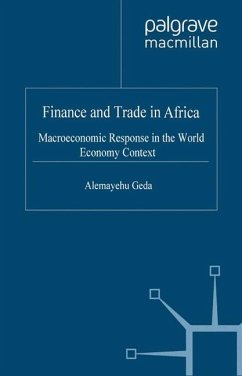
First World, Third World
Versandkostenfrei!
Versandfertig in 6-10 Tagen
76,99 €
inkl. MwSt.
Weitere Ausgaben:

PAYBACK Punkte
38 °P sammeln!
This new updated and extended edition of First World, Third World examines the failures of aid to eliminate poverty. The world development effort can claim only limited success, and in some parts of the world, especially Africa, failure must be recognised. William Ryrie, while starting from a position of sympathy with the aims of the aid effort, insists that the record must be analysed with ruthless honesty. Well-intentioned aid has often had perverse and harmful effects. One of these has been to undermine the working of the market economy, which offers the best hope for development and growth...
This new updated and extended edition of First World, Third World examines the failures of aid to eliminate poverty. The world development effort can claim only limited success, and in some parts of the world, especially Africa, failure must be recognised. William Ryrie, while starting from a position of sympathy with the aims of the aid effort, insists that the record must be analysed with ruthless honesty. Well-intentioned aid has often had perverse and harmful effects. One of these has been to undermine the working of the market economy, which offers the best hope for development and growth. His book proposes a new approach to the development task which would reconcile it with market philosophies.














